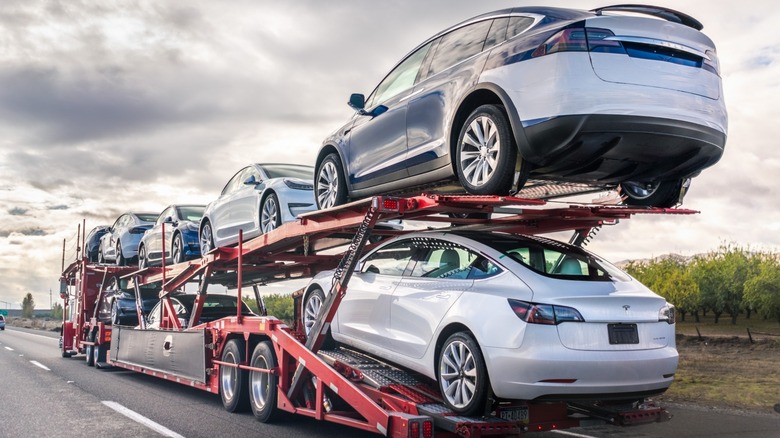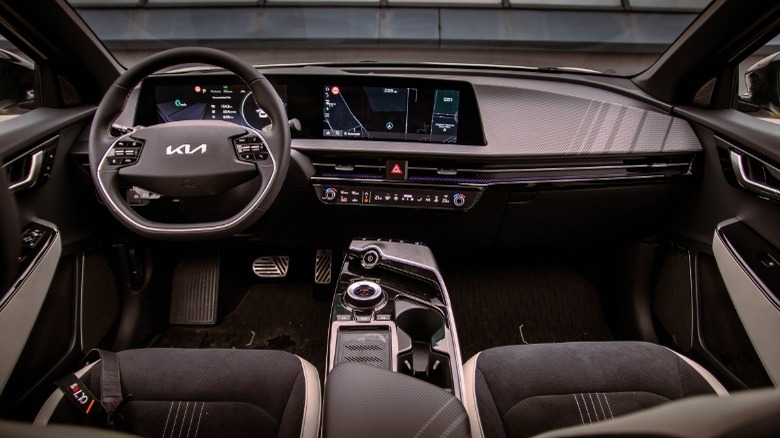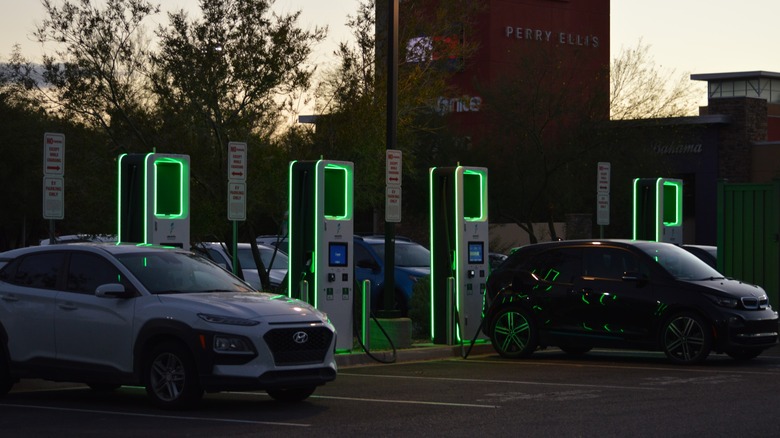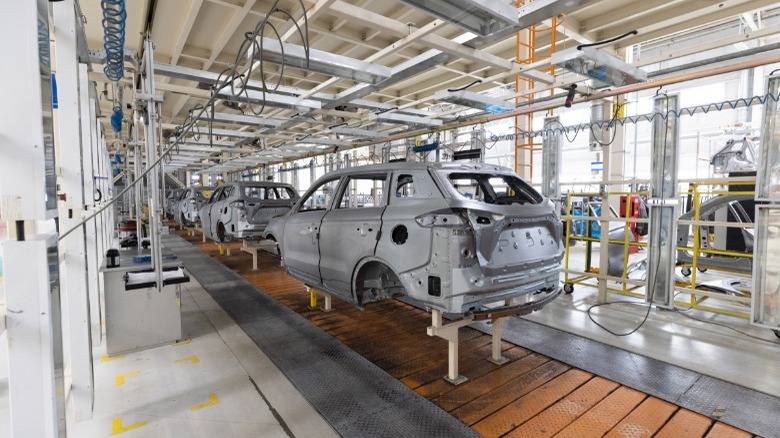

Here's Why The Experts Say EVs Can't Quite Match Gas-Powered Cars
source link: https://www.slashgear.com/1188288/heres-why-the-experts-say-evs-cant-quite-match-gas-powered-cars/
Go to the source link to view the article. You can view the picture content, updated content and better typesetting reading experience. If the link is broken, please click the button below to view the snapshot at that time.
Here's Why The Experts Say EVs Can't Quite Match Gas-Powered Cars

EV technology has made great strides in the last decade or so. Between 2011 and 2021 alone, the average EV range has more than doubled (via Visual Capitalist), coming from an average range of 86 miles up to a very usable 217 miles. This increase in range is not only thanks to advancements in lithium-ion battery technology, but also due to the fact that more manufacturers are entering the EV space.
Whether as a result of regulatory pressure, or because of public demand, brands like BMW, Ford, General Motors, Hyundai, Kia, and Peugeot have started pivoting more resources to their electric vehicles — a move that's given consumers a lot of freedom of choice when it comes to buying a new EV.
As range and competition in the sector have increased, barriers to entry have simultaneously decreased. With the overall EV ownership experience reaching parity with gasoline-powered vehicles, it's easier than ever to replace a gasoline-powered vehicle with an electric model. That doesn't mean there aren't still hurdles for EVs, though.
The EV ownership experience is excellent and costs are declining

One of the biggest barriers to entry for electric vehicles until very recently has been up-front cost. Even most of the electric vehicles available today are rather expensive, with the average purchase prices for the top 10 EVs in 2022 coming in at $68,817, according to Find My Electric. According to the newly-released J.D. Power EV Index, price is one of the stronger points in the electric vehicle market. The weaker points of electric vehicles are more concerning, though.
The EV Index, which analyzes data surrounding six factors of the EV industry, is meant to represent how close the electric market is to overall parity with regular internal combustion vehicles. The J.D. Power EV Index evaluates the industry across six criteria — interest, availability, affordability, adoption, infrastructure, and experience. At the beginning of 2023, the EV Index scores the industry at 51. While some criteria look rather promising — with affordability and experience coming in at 87 and 93 respectively — the others are woefully lacking.
It stands to reason that criteria like adoption and interest, clocking in at 26 and 27 respectively, are largely dependent on the other criteria. Nobody wants to buy an electric vehicle that's too expensive, difficult to own, offers a poor experience, and costs too much.
Infrastructure is holding the EV industry back

In an interview with Automotive News, Elizabeth Kreak — J.D. Power's vice president of EV practice — said that many EV owners are reluctant to go back to a gas-powered vehicle, and that owners "fall in love" with the quietness, instant torque, and ride quality. High owner satisfaction means that, at the very least, EV market share is unlikely to decline suddenly, but it also directly feeds into the infrastructure problem that EVs currently face.
According to J.D. Power, infrastructure is already unable to keep up with the growing demand and adoption rates for EVs. Range anxiety is still one of the biggest concerns for EV owners, and this is generally alleviated with publicly available fast chargers. While charging networks have grown — with over 53,000 charging stations distributed throughout the U.S. in 2021, according to the World Economic Forum, they still fall woefully behind the 145,000 gas stations distributed throughout the U.S. (via The World Economic Forum).
Distribution of EV charging stations also presents a problem, since chargers are highly distributed throughout only 10 states, with California alone housing 15,182 chargers — with New York coming in second with 3,085 chargers. To make matters worse, more than 20% of EV drivers have been unable to use a charger at some point due to damage, maintenance, or malfunctions.
Supply chain and manufacturing need to catch up before EVs win

One of the other big hurdles for electric vehicles is availability, scoring just 30 out of 100 is availability. It's widely known by now that the supply chain shortages have plagued the entire automotive industry since the start of 2020. The data from J.D. Power represents the industry throughout 2022, so it make sense that availability would be low, given the market is still recovering somewhat.
Still, it's concerning to note that EVs lag the combustion competition so much when it comes to availability. This might also be due to manufacturers catching up to increased demand. As of the end of 2022, electric vehicles accounted for 5.3% of all new vehicles registered in the U.S., which is up from just 2.9% in 2021 (via Automotive News), representing an over 100% increase in registrations. This tells us that not only is demand increasing, but so is availability.
The EV ownership experience is highly rated, meaning that once headaches like infrastructure and availability are resolved, adoption and interest should follow suit. That being said, if adoption grows too quickly, infrastructure may not be able to keep up. J.D Power estimates that by 2025, one in every five vehicles sold will be an EV. Adoption should increase even more once additional federal tax incentives come into place, so it's important for players in the EV industry to work towards solutions before owner experiences are negatively affected.
Recommend
About Joyk
Aggregate valuable and interesting links.
Joyk means Joy of geeK